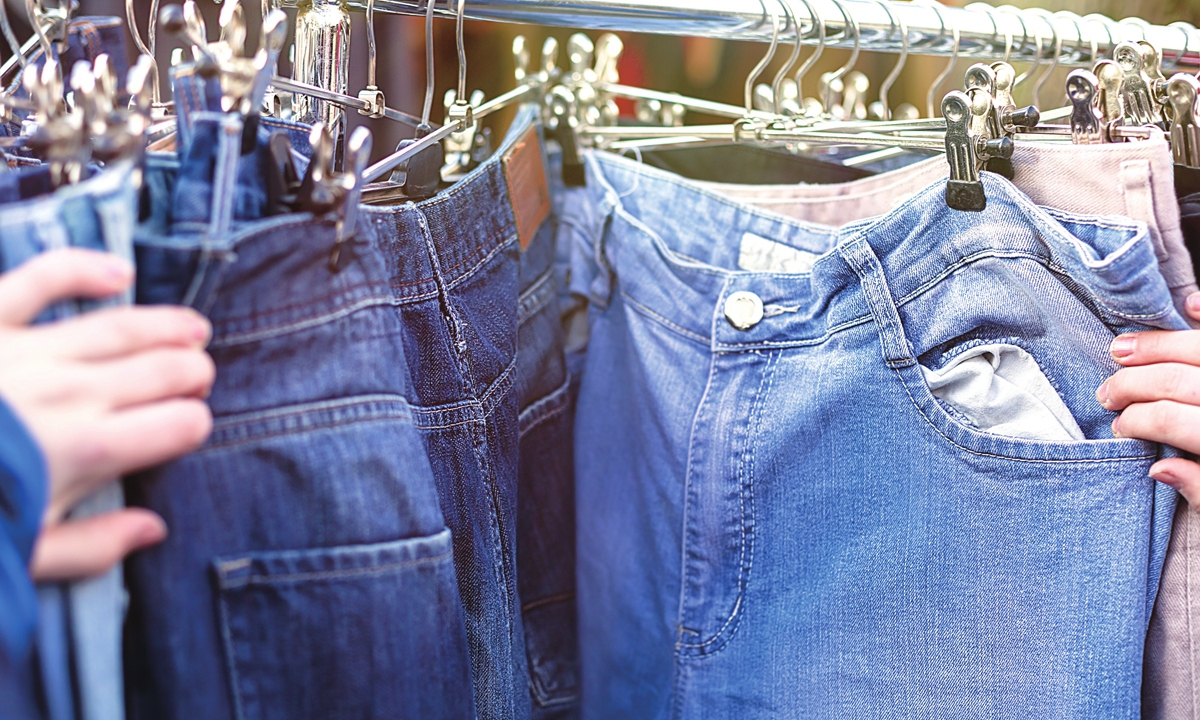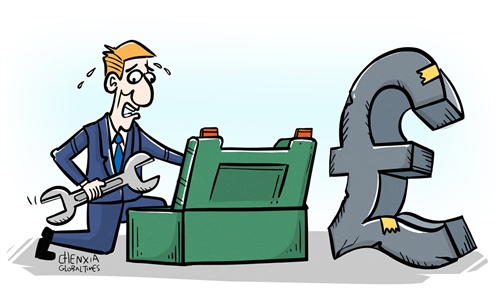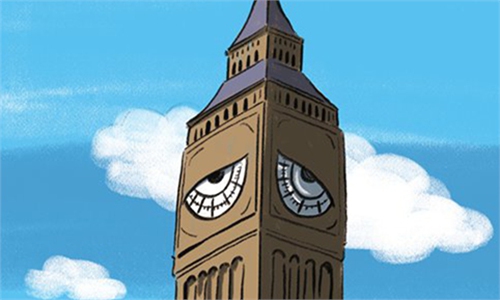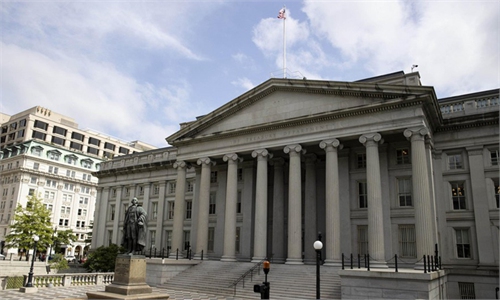
Jeans at a flea market Photo: VCG
Several executives of foreign trade companies and clothing businesses in East China's Jiangsu and Zhejiang provinces that I talked to recently held a pessimistic view on economic outlook for Western countries. The reason behind their judgment is many factories and enterprises have received a sharp increase in jeans orders in recent years. According to past experience, whenever jean orders rise, foreign economies are indeed in recession to varying degrees.In the fight against the COVID-19 pandemic over the past three years, some factories have more than doubled their jeans orders. But in the good years of economic prosperity, high-end dresses, evening dresses and various high-end business clothes dominate the market. The increase of jeans orders shows that foreign business activities and living standards have declined and low-cost clothing is needed to supplement market demand.
Due to geopolitical conflicts and energy crises, commodity prices have risen, and a large number of companies have laid off a large number of employees, which directly affects the quality of life of people in Western countries. The pursuit of high-end purchases by many consumers in Western countries has given way to demand for lower-priced and practical products.
The recent wave of strikes in Western countries has shattered the myth of "Western modernization" that has long confused outsiders: unemployment, corruption, violence and the collapse of credit have become a microcosm of modern Western life. The sharp uptick of demand for jeans rather than high-end dresses probably confirms the decline of Western modernization.
About half a century ago, there was also a jeans boom all over the world. Especially in Western mainstream countries, jeans became a fashionable symbol at that time, and because of its durable feature, it became the favorite of many people.
During the epidemic, people's consumption mentality is also quietly changing. People's sense of crisis, disaster prevention, and consciousness of seeking shelter have been greatly enhanced: Western consumers pay more attention to practicality and price, so orders for jeans have risen sharply. The phenomenon reflects the changes on the demand side. Many Chinese businesses and manufacturers have gone with the trend and alternated their production and material supply, providing suitable consumer goods for international market.
China's modernization is different from the Western modernization. Yet, no matter what kind of modernization, an important criterion is affluent consumer goods and materials. Looking at the mainstream Western countries, they seem have not achieved this criterion of modernization.
The key to global recovery and prosperity is peace and cooperation. Unfortunately, the US and many other Western countries are exacerbating geopolitical tensions rather than solving them. The relentless Western narrative that feeds to economic "decoupling" is simple-minded and dangerous. At this critical juncture for global economic recovery, Western leaders should drop zero-sum gaming mindset in economic issues and restore peaceful environment to promote economic cooperation.
The author is a senior fellow of the Chongyang Institute for Financial Studies at Renmin University of China. bizopinion@globaltimes.com.cn



